Donee Alexander
Chief Science and Learning Officer

Chief Science and Learning Officer

Black carbon (BC) emissions from household cookstoves consuming solid fuel produce approximately 25 percent of total anthropogenic BC emissions. The short atmospheric lifetime of BC means that reducing BC emissions would result in a faster climate re…
Read more
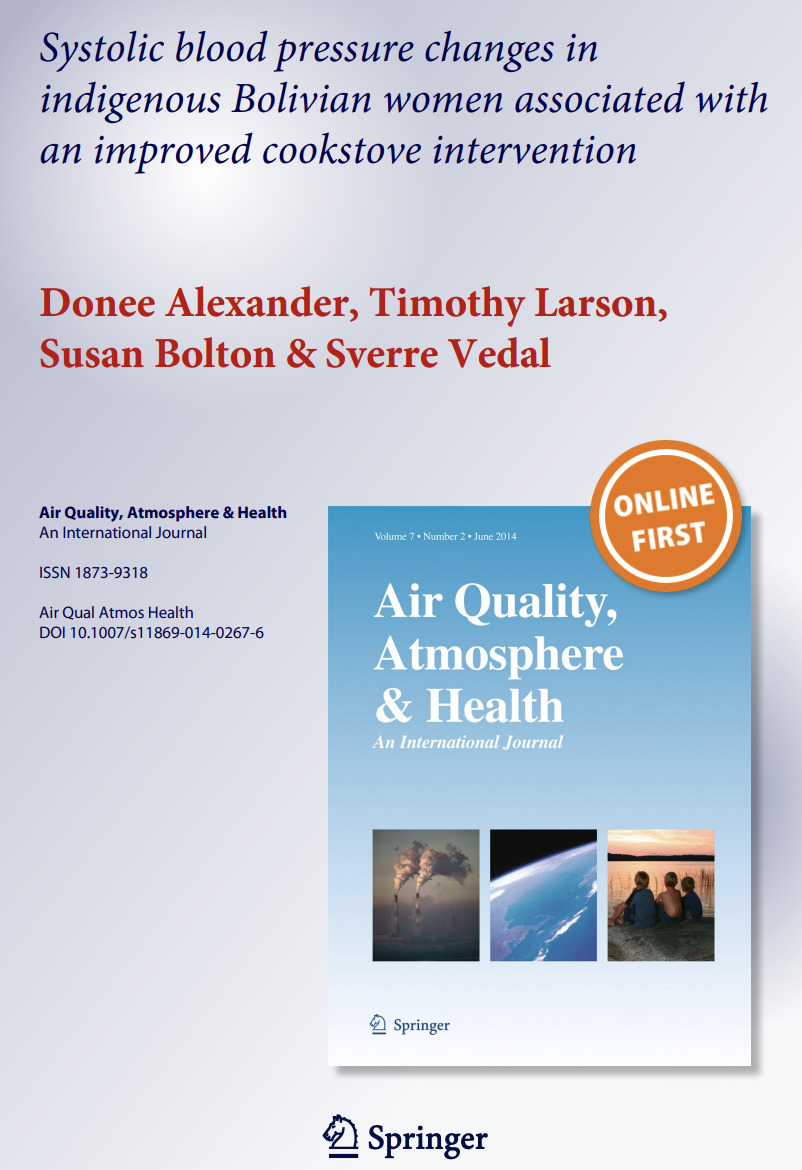
Journal of Air Quality, Atmosphere and Health: The use of biomass fuels as a primary fuel source is widespread and is linked to significant health effects. High blood pressure is a risk factor for cardiovascular effects including myocardial infarctio…
Read more
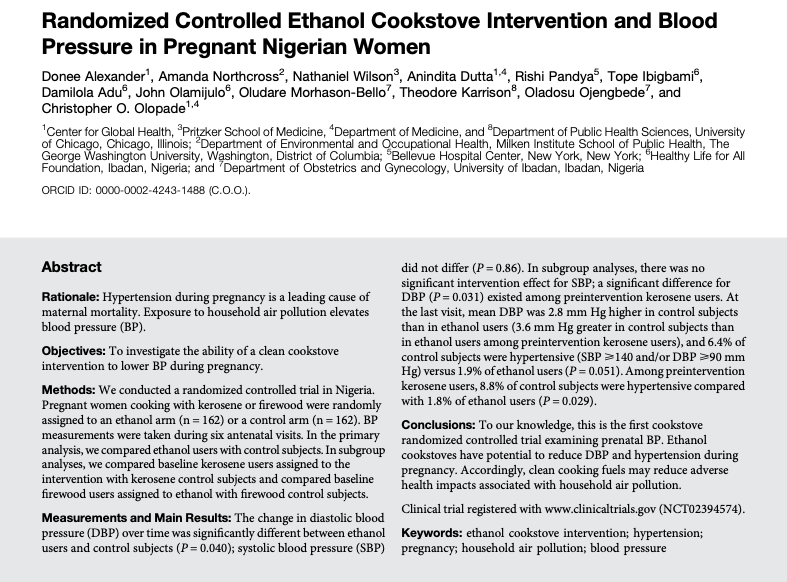
Hypertension during pregnancy is a leading cause of maternal mortality. Exposure to household air pollution elevates blood pressure (BP).
Read more
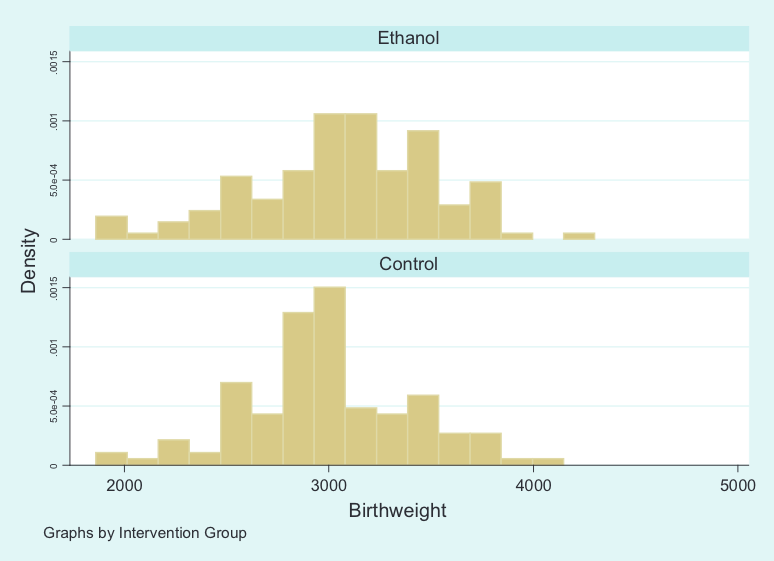
Household air pollution exposure has been linked to adverse pregnancy outcomes. A randomized controlled trial was undertaken in Ibadan, Nigeria to determine the impact of cooking with ethanol on pregnancy outcomes.
Read more
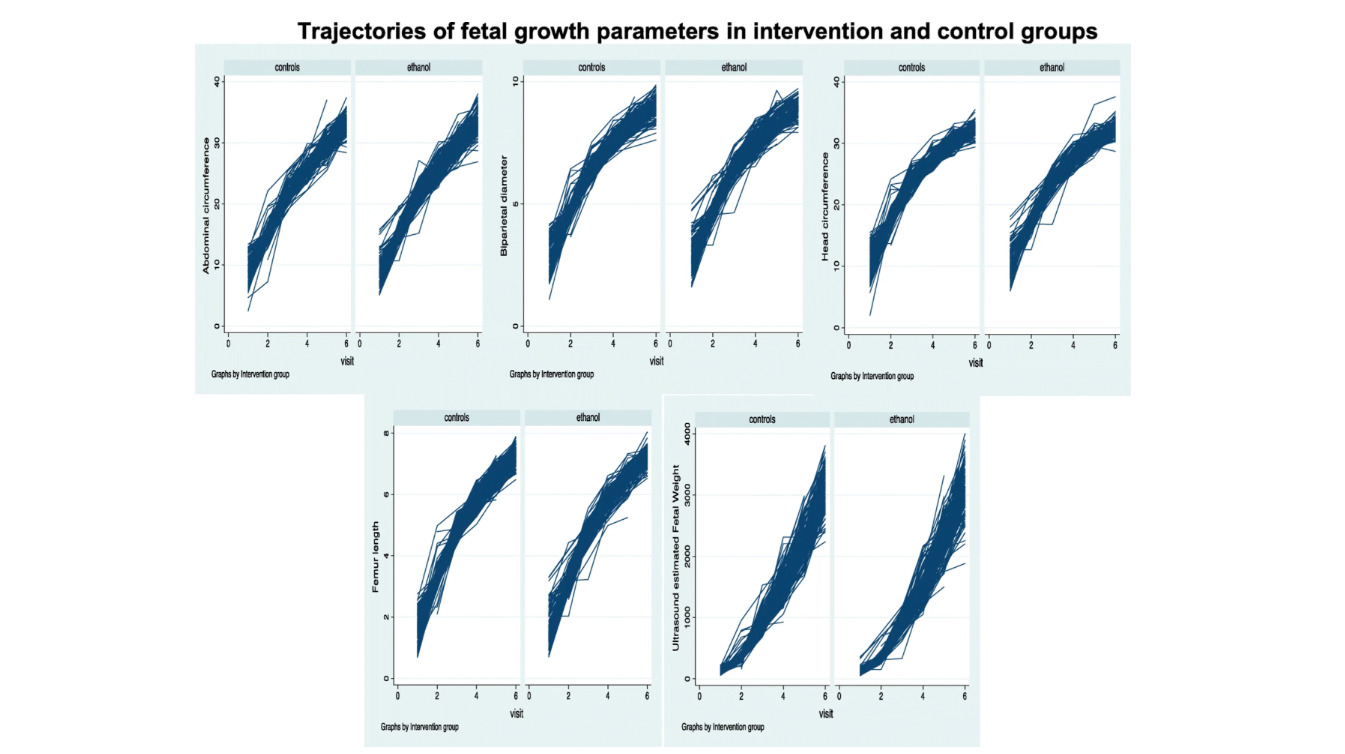
We investigated the effect of a cookstove intervention on fetal biometric parameters and intrauterine growth restriction in a randomized controlled trial cohort of household air pollution-exposed pregnant Nigerian women.
Read more
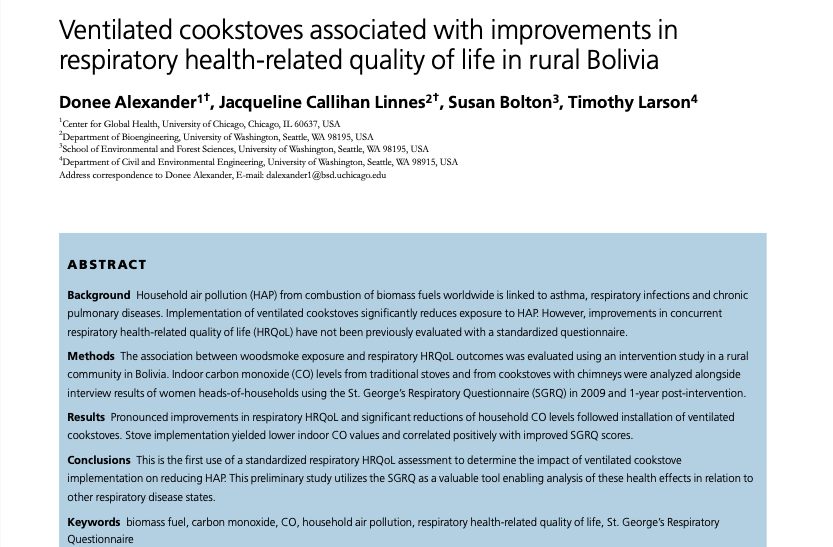
Household air pollution (HAP) from combustion of biomass fuels worldwide is linked to asthma, respiratory infections and chronic pulmonary diseases. Implementation of ventilated cookstoves significantly reduces exposure to HAP.
Read more
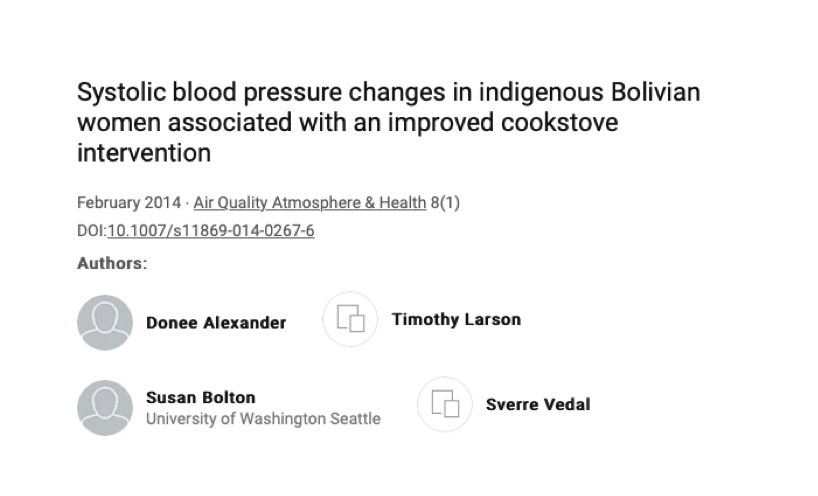
This study evaluated the effects of changes in cookstove-related particulate matter on blood pressure in 28 women head-of-households pre-intervention and 1 year post-intervention of an improved cookstove in a small, indigenous community in rural Bolivia.
Read more
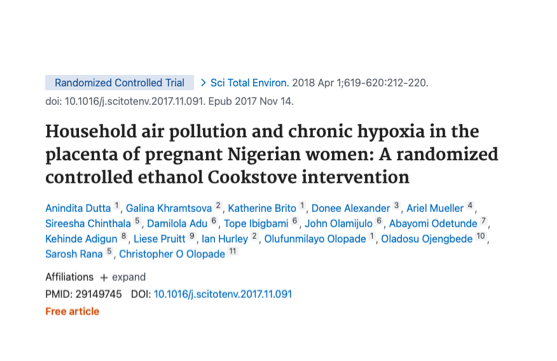
Household air pollution (HAP) is associated with adverse pregnancy outcomes. This study investigates the impact of in-utero HAP exposure on placental development and chronic hypoxia.
Read more
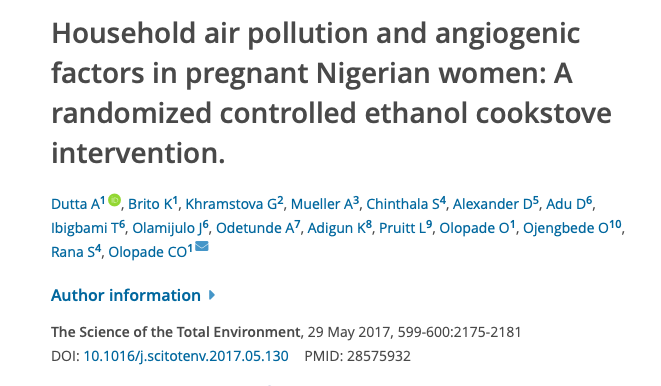
Maternal exposure to ambient air pollution affects placental growth markers. This study investigates the impact of household air pollution (HAP) on placental growth markers.
Read more
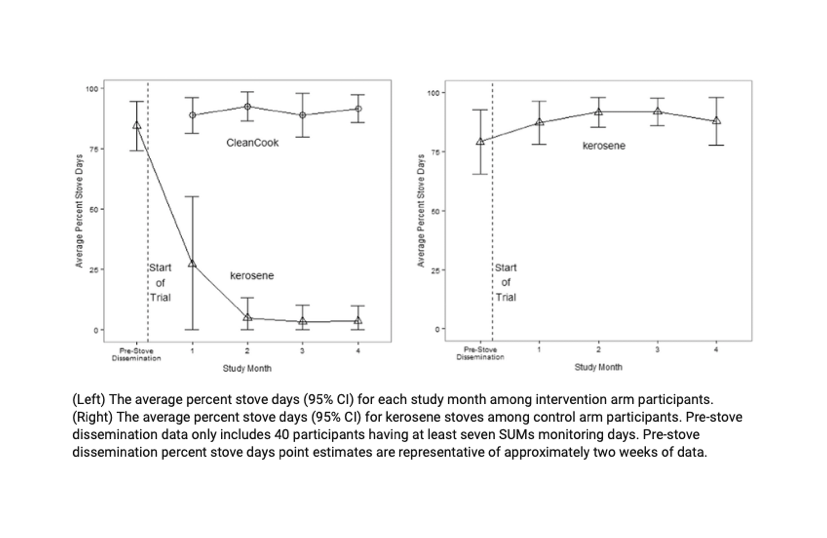
An unbiased assessment of cooking patterns during a cookstove intervention can provide strong evidence for sustained usage of a cookstove among the target population.
Read more

Page 24 in Boiling Point, a practitioner’s journal for those working with household energy and stoves.
Read more
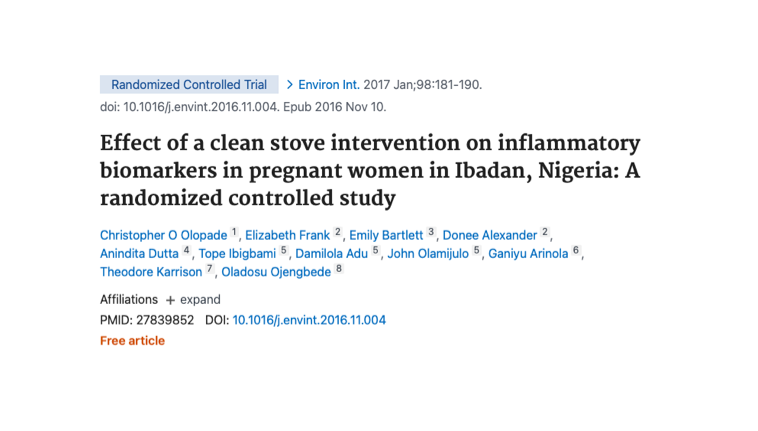
Exposure to household air pollution (HAP) has been linked to systemic inflammation. We determined the impact of transition from traditional firewood/kerosene stove to bioethanol-burning stove on inflammatory biomarkers in pregnant Nigerian women.
Read more
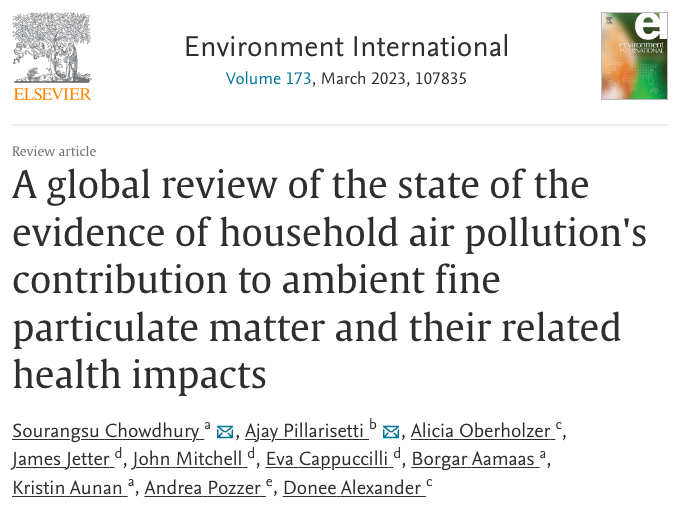
We find that household fine particulate air pollution is a dominant source of ambient fine particulate matter (PM2.5) globally — regardless of variations in model types, configurations, and emission inventories used — that contributes approximately 20 % of total global PM2.5 exposure.
Read more